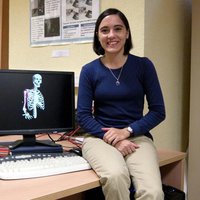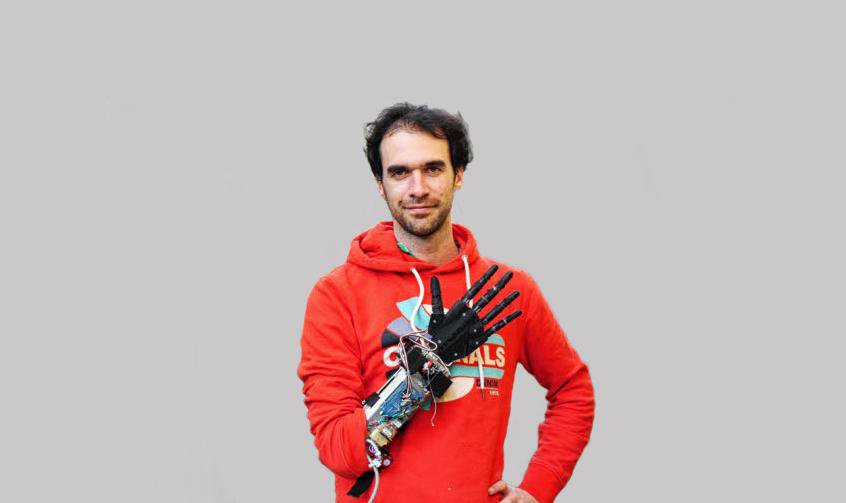"In 2002 an accident changed the life of young Nicolas Huchet. At 18, this Industrial Mechanic had to learn to live with a myoelectric prosthetic hand that looked nothing like what he had seen in the movies. After 10 years of functional limitations, in 2012 the market offered new and better models but he couldn’t afford them. The high price of these prostheses isn’t covered by the French social security system.
That same year, coincidentally, Huchet discovered the 'maker' culture at LabFab in Rennes (France), and he immediately thought whether it would be possible to build his own prosthesis. He now proudly presents his Bionic Hand in various electronics exhibitions, a prosthesis he made for himself with 3D printed parts and open source hardware.
Myoelectric prostheses have electrodes that detect muscle contraction impulses and amplify them to generate an electronic signal. This signal reaches a microprocessor as an order to flex or extend the fingers. ""In essence, it’s a robotic hand whose instructions come from the muscles of the arm and not from a computer program,"" explains Huchet. It was about adapting the design of the robotic hand to the needs of prosthetics, and finding out how to control the myoelectric sensors.
The current prototype has two sensors that detect the contraction of two muscles and then move them to an Arduino board. It interprets them as commands to open or close the clamp, which is the shape of the hand used to hold an object like a glass, for example.
Huchet’s aim is to provide greater mobility to achieve other functions such as a lateral gripper to make a fist gesture and grasping something tightly, or using only the index finger to point, or press keys and buttons. The result would be similar to the advanced prosthesis commercially available, but at a fraction of the cost. ""This requires more sensors and motors, which increases the weight of normal prostheses and would make regular prostheses unviable, but Bionic Hand is made entirely of 3D printed plastic, so it will be lighter,"" says the young Frenchman.
In the words of Maud Ankaoua, judge of the MIT Technology Review Innovators Under 35 awards France and founder of the company MKWA Innovation, Nicolas Huchet has a ""recognized talent and commitment, and an ability to communicate his enthusiasm for the project.""
The Bionic Hand design has been awarded in several exhibitions in Rome (Italy), Paris (France) as well as San Francisco and New York (USA). Thanks to this success, Nicolas Huchet has created My Human Kit, a foundation to channel the project and collaborate with institutions like Johns Hopkins University (USA) and the Biorobotics Institute in Pisa (Italy) and, in the future, extend the range of products developed in an open and economical way for people with special needs."




